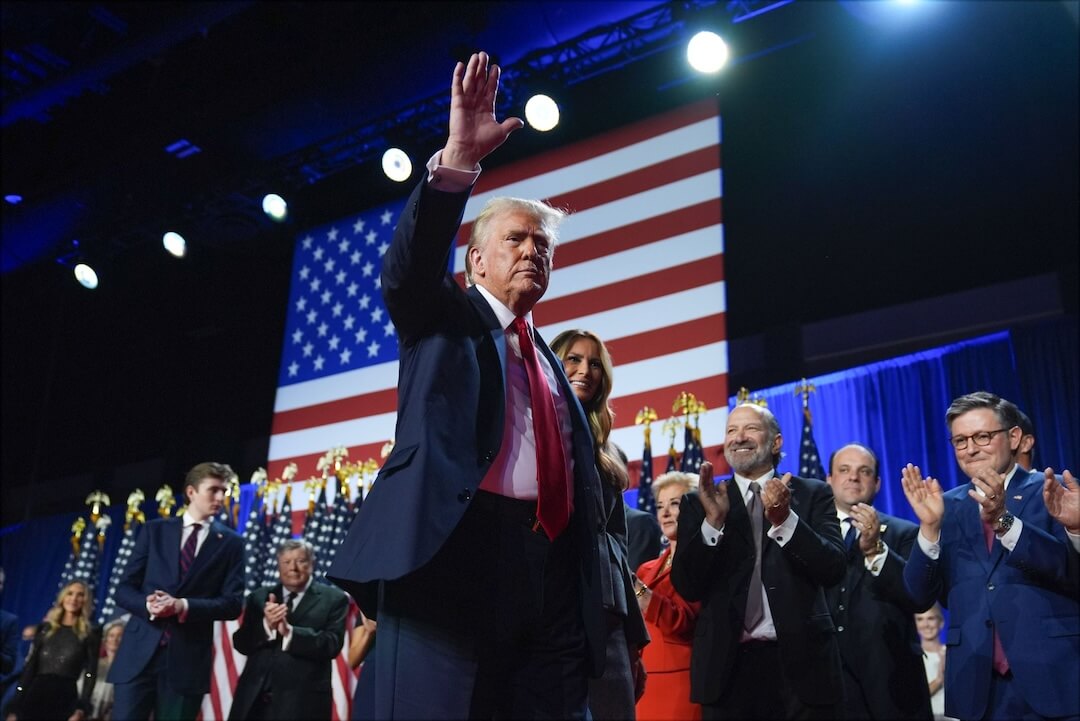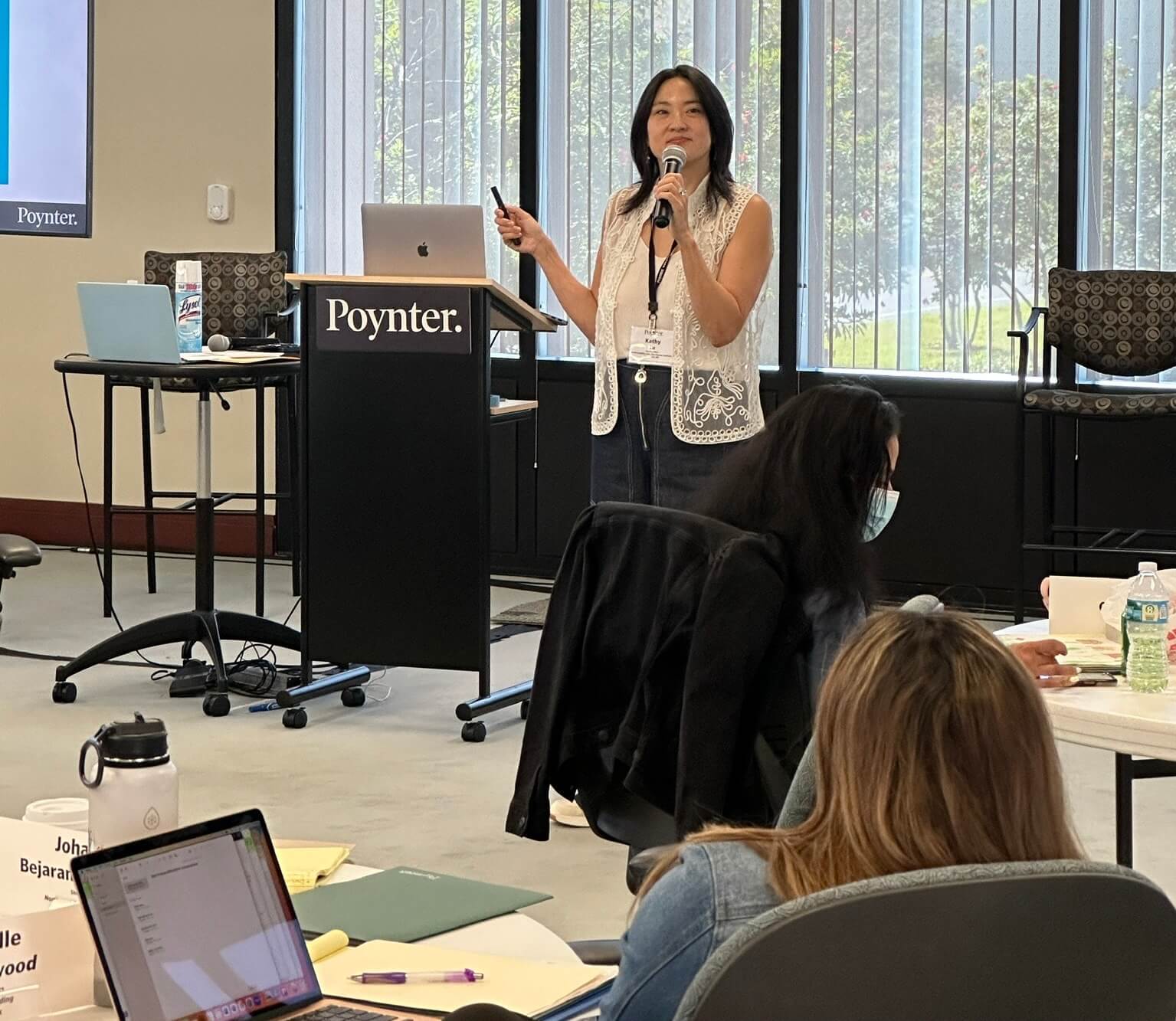In the beginning of March, Peter Cunliffe-Jones, the man who founded Africa Check in 2012, announced he would step down as its executive director in May. It was time for Noko Makgato, a South African media leader, to take up the position and run the initiative that works in four different countries: South Africa, Nigeria, Kenya and Senegal.
The fact-checking community welcomed Makgato and supported Cunliffe-Jones’ decision but kept wondering: “What will Peter do now?” So here comes the news: Cunliffe-Jones is now a senior adviser to the International Fact-Checking Network (IFCN) and will help us review our code of principles.
Established in November 2016 during the third Global Fact-Checking Summit, held in Buenos Aires, the code of principles helps to distinguish reliable fact-checking initiatives. It serves as a “seal of quality” for outlets that work to identify what is true and false in public discourse.
For this reason, it must remain a work in progress.
From May to December 2019, Cunliffe-Jones will interview signatories, applicants and assessors to prepare a report on what must be renewed in the code of principles. Below, you will find an email Q-and-A with him about his new role as an IFCN senior adviser.
Why have you decided to leave the role of Africa Check’s executive director?
Africa Check today has a board drawn from the four countries we work in: South Africa, Nigeria, Kenya and Senegal. Since we launched in 2012, it has always been planned we would have someone from the continent itself as executive director. For all that I have lived part of my life in Africa, I am not African. And I am very proud and happy we have got to the time to make the change.
Do you think you will miss it?
I’m not sure I’ll miss sorting out budgets and finances, but other aspects, sure. Honestly, though, I couldn’t be happier with the work that Africa Check is doing, and the impact we are having reducing the harm done by misinformation across the continent. I am confident we will see that continue and grow under my successor, Noko (Makgato).
Africa Check has a new director. Here’s his vision for fact-checking on the continent.
What should we expect from you as the senior adviser to IFCN in the coming months?
I’ve been asked to help on a specific project to review: how the code of principles is working. My plan is to talk over coming months to as many as possible of the code’s signatories, applicants, independent assessors, IFCN partners and others — and publish a report with the findings to help the International Fact-Checking Network team and board see what is working well and what is not.
You are a respected leader in the fact-checking field and one of the seven advisory board members who drafted the code of principles. How would you evaluate the success of the code of principles so far?
Dulce Ramos, the former IFCN program manager, carried out a first review of the code last year and I think it showed us quite a lot.
First, introducing and having the code accepted as a global standard for fact-checking was shown as a remarkable success — something way beyond what we imagined. Second, Dulce’s review found that having to adhere to the code has pushed fact-checkers to make changes to become better and more transparent organizations, which is very important. Third, it also made clear there are challenges in making the code work for organizations in very different contexts around the world and for organizations that are in different stages of development.
How do you — “the reviewer” — see the code?
I think it’s important we see the code as a floor not a ceiling to our ambitions. Most people want us to enable newer, emerging fact-checking organizations to be tested and prove they meet an acceptable standard. But is there a way, at the same time, to encourage the more established organizations to go further? I think that is an interesting question.
I also think we need to explore how we give users a clearer role in the process, as was part of the original thinking for the code. And we need to get the balance right between the flexibility needed to ensure we have standards that can be applied in different circumstances across the world and consistency in how we apply them. Those are just some of the questions I hope to explore in the coming months.
Having the code as “a floor not a ceiling to our ambitions” means fact-checking platforms must go beyond and be more transparent than the code demands. Why should they do this?
It’s not so much a case of saying anyone “should” do this as of exploring whether there are ways to enable organizations who want to show that not only do they meet the standard but that they have gone further to do this.
To make a parallel, at college you get a pass mark if you meet the right standard, but if you want to go further — get a higher grade or additional exams — you can. Is that a good or bad thing? At this stage, I do not want to rule anything in or out. I see this as a conversation. But I do think there are several options that could be explored for how to do this — how to ensure the code is a floor, not a ceiling, if that is something that signatories want.
How will you be working with the IFCN leadership and the members of the community?
To someone who has always worked in a competitive news environment, one of the remarkable things about the fact-checking community is how collaborative it is. And that is how I want to carry out this review. As far as the time allows, I plan to reach out to signatories, applicants, independent assessors, IFCN partners and others so I can hear and put forward their views on how we develop the code as a set of agreed standards for this community.
The code of principles has served to audit and to verify fact-checking platforms around the world. Its green badge now helps Facebook choose partners to work with. What are the good and the bad things about this situation?
I think it is a great thing that being a signatory of the code has been accepted as a requirement by Facebook. Of course, this has led to some misinterpretations in the current heated atmosphere.
But to me, it is a good thing that anyone working on tackling misinformation on a platform as powerful as Facebook should adhere to basic principles of openness and non-partisanship that are at the heart of the code. An important next step would be to get this adopted as a standard more widely by other platforms: Twitter, WhatsApp, YouTube and others.
Nonpartisanship is something really difficult to prove but at the same time fundamental for the fact-checking system. Any concrete suggestions for fact-checking platforms on how to work this out on their daily routines? Is this only a question of how many fact-checks you publish for each side?
You are right that non-partisanship is hard, both to achieve and to prove. Everyone agrees with the principle of non-partisanship but few agree what it means in practice. The challenge for a global organization such as the IFCN is to come to an understanding of non-partisanship that makes sense in the many contexts and countries that member organizations work in.
Let’s start with politics. Most people think about non-partisanship in terms of politics. That should be relatively simple but what non-partisanship means in two-party or multi-party democracies like France is different from what it means in an effectively one-party state, as we see in some other parts of the world. And the stage of the political cycle also affects how people think about partisanship. Around the world, many media regulators and election laws have different rules for reporting during election campaign periods and once the votes are counted and the governing party is held up to more scrutiny. Should that be taken into account?
But these days, fact-checkers do not focus purely on political topics. Our code needs to cover fact-checking in other fields from social issues to health and science. And we need to look at different types of fact-checking. Some seek to focus not on the person who makes the claim, but on the claim made and how do you assess that.
All this is to say, the issue is highly complex and, at this stage, I don’t want to make any concrete suggestions as I think it is important I first listen to as many fact-checkers, assessors and others as possible on the subject. I will then try to reflect these views in my report.
Being transparent about funding is also fundamental. But in the IFCN community, there are different business models: NGOs, for-profit small companies and also fact-checking platforms that are embedded in huge media outlets. Will the code of principles keep demanding the same degree of transparency from all of them, or do you intend to propose any change?
It is true that the IFCN community has many different business models, and the code of principles does take that into account to some degree. I think financial transparency is essential but how we apply this and how we get the balance right between flexibility and consistency is key. At this stage, it is too early for me to make any recommendations but I will be happy to talk to the signatories to get their views about these challenges.
What do you expect to see/discuss at Global Fact 6? If it depended only on you, what would be the major topic on the table this year, in Cape Town, and why?
I am very excited that Global Fact 6 is happening in Cape Town. It is the city my wife is from and I have spent a lot of happy times there. It is particularly great that there will be more African fact-checkers able to attend the meeting than ever before as a result.
I will be there and happy to talk to people about the code of principles. More broadly, I think the most important topic for all fact-checkers to think is how we each work out the harm we think different forms of misinformation do and don’t cause in our different countries, and the ways our work does and does not help reduce that harm.
Correction: A former version of this article incorrectly stated that 10 IFCN advisory board members drafted the code of principles. In fact, there were seven advisory board members.







